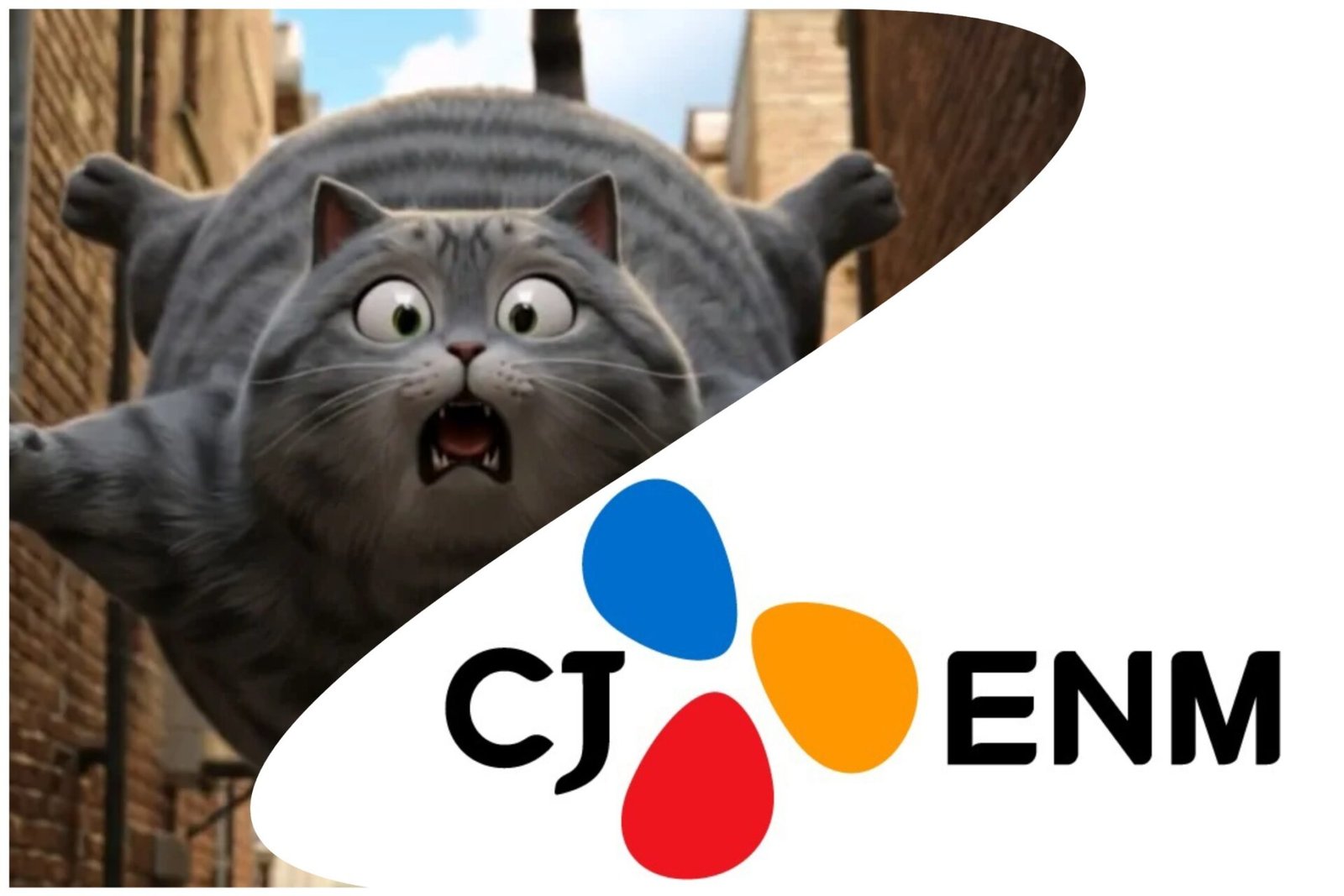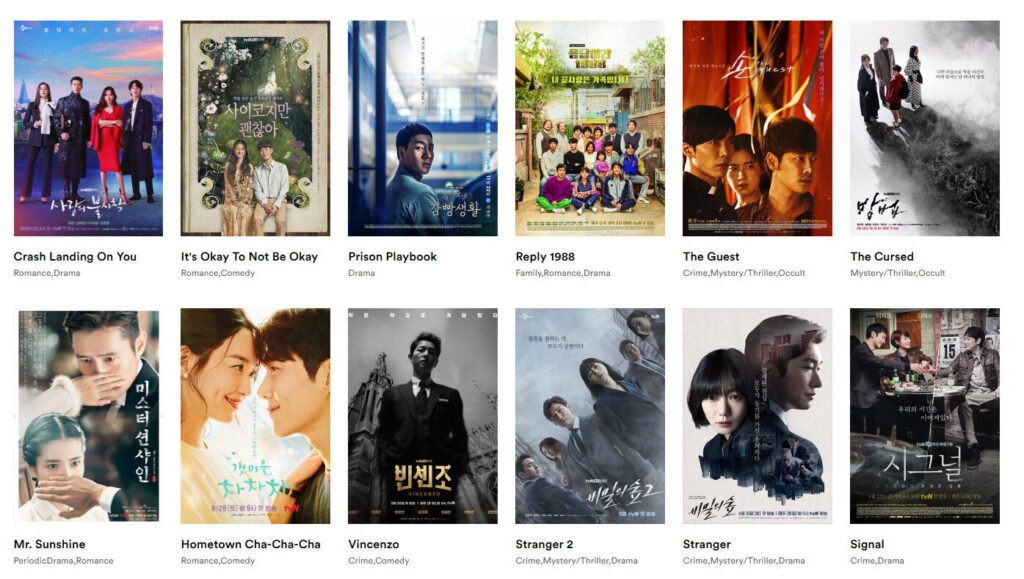
The studio behind Parasite (and endless K-dramas) unveils its first fully AI-generated series, while questions about transparency and trust still linger.
CJ ENM wants you to meet Cat Biggie — a fatherly feline who just became the unlikely parent to a baby chick. He’s cute. He’s animated. And he’s entirely the product of artificial intelligence.
The non-verbal short-form series, created using CJ ENM’s in-house AI production tools, premiered this week at the company’s 2025 Culture Talk event in Seoul. But while Cat Biggie is being touted as the future of K-content — faster, cheaper, and wholly AI-driven — it also arrives with a more complicated subtext: the studio’s well-documented history of cutting ethical corners.
From Oscar Gold to Algorithmic Storytelling
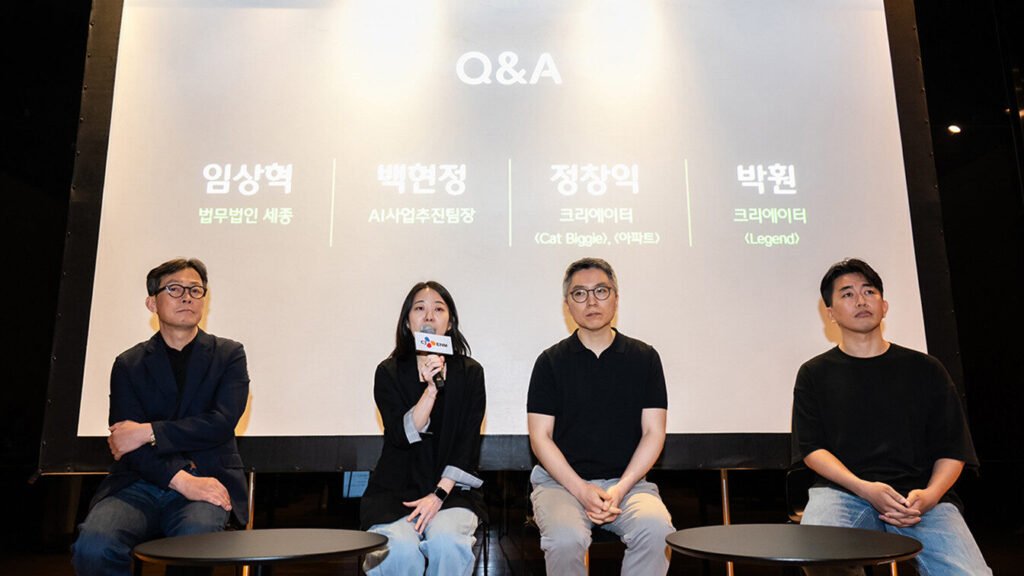
The same company that helped launch Parasite to global acclaim is now pitching itself as a “global AI studio.” During the event — titled K-Content Meets AI — CJ ENM executives laid out a sweeping plan to embed AI across “the entire content value chain,” from story planning to distribution. The crown jewel of this initiative is Cinematic AI, a proprietary system capable of handling visuals, audio, and character animation all in one pipeline. The studio also debuted AI Script, an internal tool that scans consumer trends and market data to generate content ideas with high “marketability potential.”
The result: a full 30-episode run of Cat Biggie, each episode just two minutes long, completed in five months by a six-person team. Compared to traditional timelines for 3D animation, that’s a drastic efficiency boost — one that CJ ENM is already looking to apply to AI-generated dramas and films later this year.
The Elephant in the Server Room
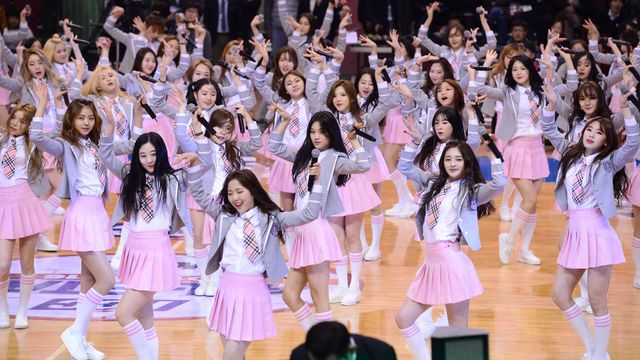
But while Cat Biggie may represent a technical milestone, it also risks being read as a calculated image reset.
Just a few years ago, CJ ENM was at the center of one of K-pop’s biggest industry scandals. Multiple seasons of its hit competition show Produce 101 were found to have rigged public voting results. Top executives, including producer Ahn Joon-young, were convicted. The company apologized — then quietly rehired Ahn after his prison sentence, prompting massive public backlash and renewed concerns about accountability.
The irony isn’t lost on observers: a company once caught manipulating audience input is now investing in tools that could remove audiences — and creative labor — from the process altogether.
Efficiency or Evasion?
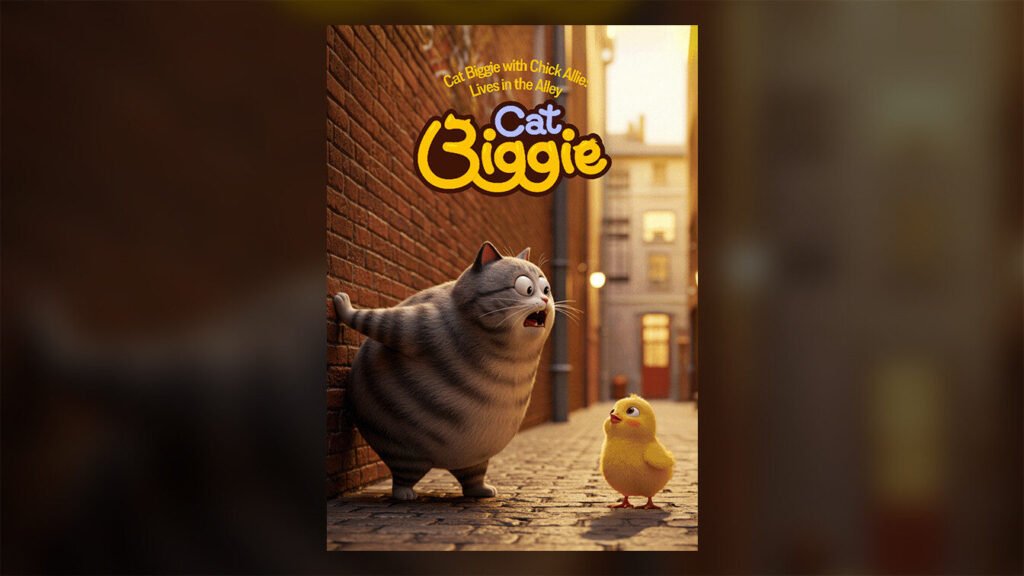
CJ ENM’s pivot to AI arrives at a moment when the entertainment industry is still debating how (or if) to ethically integrate machine learning into creative workflows. Executives insist their AI isn’t replacing artists but empowering them. And yet, Cat Biggie was produced with a fraction of the usual team, over a fraction of the usual time.
That raises questions: Will these tools amplify creative expression, or just flatten it into market-tested efficiency? Can a studio with a documented history of manipulation be trusted to deploy AI responsibly?
The Future of K-Content, According to CJ ENM
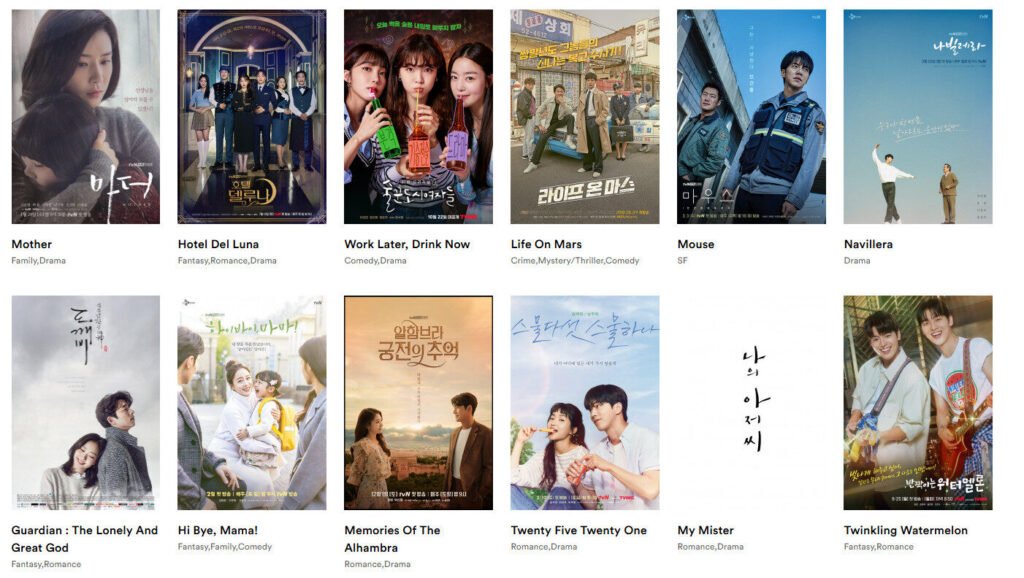
None of this has stopped the rollout. CJ ENM’s AI initiative is full steam ahead. More animation is coming. AI films and dramas are on the slate. The company is launching creator development programs to support the shift. And in July, Cat Biggie will go live on YouTube, where it will serve as both a soft launch and a stress test for the studio’s AI ambitions.
CJ ENM helped globalize Korean storytelling. Now it wants to automate it. Whether Cat Biggie is the beginning of a new era or just a glossy distraction from past missteps remains to be seen. But one thing is clear: the cat’s out of the bag.
